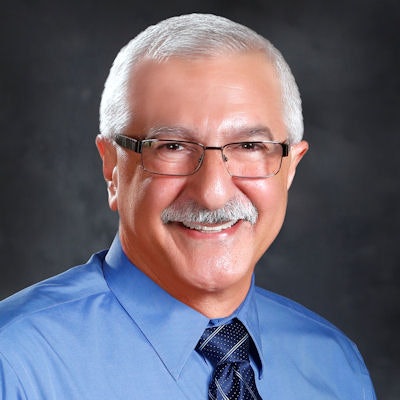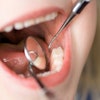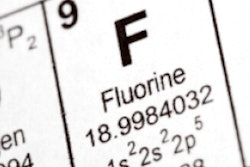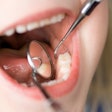
Myths and confusion have frustrated efforts to increase participation in vaccinating Americans against COVID-19. Like vaccines, fluoride has been the target of ongoing misinformation. Unfortunately, it is unlikely that a recent review by the National Academies of Sciences, Engineering, and Medicine (NASEM) will curb the false or misleading information about fluoride.
In February, a NASEM committee finished its peer review of a monograph drafted by the National Toxicology Program (NTP). NASEM's review rejected the NTP's draft conclusion that fluoride is a cognitive neurotoxin because NTP failed to offer "a clear and convincing argument" to back its assertion. In its review, NASEM stated that parts of the NTP draft monograph were "impressionistic and haphazard" in choosing the studies from which they cited findings.
 Dr. Johnny Johnson Jr., president of the American Fluoridation Society.
Dr. Johnny Johnson Jr., president of the American Fluoridation Society.Most significantly, NASEM instructed NTP to "make it clear that the monograph cannot be used to draw any conclusions" about the fluoride levels "typically associated with drinking-water fluoridation." This was the second time in two years that NASEM issued a peer review that rejected the NTP's draft conclusion.
NASEM is perhaps the most respected scientific body in the U.S. In an ideal world, its rejection of the NTP draft monograph would reduce the misinformation about fluoride and community water fluoridation (CWF). However, all signs suggest that opponents are behaving as if NASEM never released its two reviews.
Barely six weeks after NASEM's second review, a spokesman for a leading anti-CWF group testified to local officials in Loveland, CO, and cited the NTP's draft monograph. Nowhere in his slide presentation did this opponent admit that NTP's conclusion had (twice) failed to clear peer review. Even worse, two of his slides displayed a bound booklet with NTP's logo. This image suggests incorrectly that NTP had published its conclusion about fluoride. On the contrary, the top of each page of NTP's monograph stated that its document was distributed "solely for the purpose of pre-dissemination peer review and does not represent and should not be construed to represent any NTP determination or policy."
Scientific analyses won't change someone's position if that position is based on ideology instead of science. For this reason, it is essential for dental professionals to talk about fluoride with their patients. It's up to us to answer questions and clarify information because opponents will continue to distort or cherry-pick what the evidence shows.
Only four weeks before the recent NASEM review, a large Swedish study was published online. Its authors estimated that fluoride had "a zero effect on cognitive ability" and that fluoride at levels comparable to CWF was "found to increase labor income," especially among those of a lower socioeconomic status. Once again, opponents had little or nothing to say about the Swedish study. Anything that doesn't fit their narrative is ignored.
Quite honestly, I am not surprised that opponents are operating on autopilot. Yet it is disappointing to know the NTP committee that drafted the monograph plans to publish it anyway, without a conclusion. Considering that the monograph failed twice to survive the peer review process, this strikes me as arrogant.
Publishing the monograph -- even without a conclusion -- is likely to confuse or mislead the public. This is why I urge dental professionals and oral health advocates to take two actions.
First, contact the officials who oversee the NTP and share your concern about the committee's decision to publish a monograph that failed twice to clear peer review. Let them know that unjustified fear about fluoride can lead patients to make choices that undermine their oral health.
Second, use dental visits as an opportunity to educate patients about fluoride and CWF. Your patients respect your knowledge but may have questions they are hesitant to ask. Raising this topic is a good way to welcome their engagement. The Patient Conversation Guide on this website can guide your interactions with patients.
Toothpaste and tap water with the right amount of fluoride provide important and complementary benefits. Together, the two sources offer more protection against tooth decay than using either one by itself. Dental professionals must monitor this issue and educate their patients about the strong evidence affirming the benefits and safety of fluoride.
Dr. Johnny Johnson Jr. is the president of the American Fluoridation Society.
The comments and observations expressed herein do not necessarily reflect the opinions of DrBicuspid.com, nor should they be construed as an endorsement or admonishment of any particular idea, vendor, or organization.



















